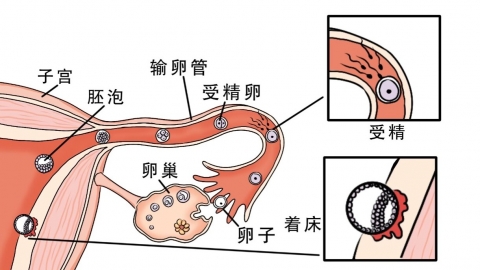Does a burning sensation in the stomach mean implantation was successful?
Generally speaking, whether abdominal burning indicates successful implantation needs to be determined based on specific symptoms and accompanying signs. If discomfort occurs, it is recommended to seek medical attention promptly. Detailed analysis is as follows:

If the sensation of abdominal burning occurs 7–10 days after ovulation, is mild in intensity, localized in the lower abdomen, and accompanied by delayed menstruation, slight lower back soreness, and breast tenderness—without symptoms such as nausea, vomiting, or diarrhea—it may be related to embryo implantation. During implantation, hormonal fluctuations can cause pelvic congestion, leading to a mild burning sensation in some individuals. This situation can be confirmed through a pregnancy test and typically does not require special treatment.
If the burning sensation is intense, spreads to the entire abdomen or upper abdomen, and is accompanied by abdominal pain, diarrhea, acid reflux, abnormal vaginal discharge, or occurs outside the expected implantation window, it is likely unrelated to successful implantation. Instead, it may be caused by gastrointestinal inflammation, gynecological infections, or other conditions. In such cases, timely diagnosis of the underlying cause is essential to avoid delayed treatment.
In daily life, maintain a light and easily digestible diet, avoiding spicy or irritating foods. Keep the abdomen warm and prevent exposure to cold. Maintain regular sleep patterns and emotional balance. When the cause is unclear, do not self-diagnose; instead, seek prompt medical evaluation.




